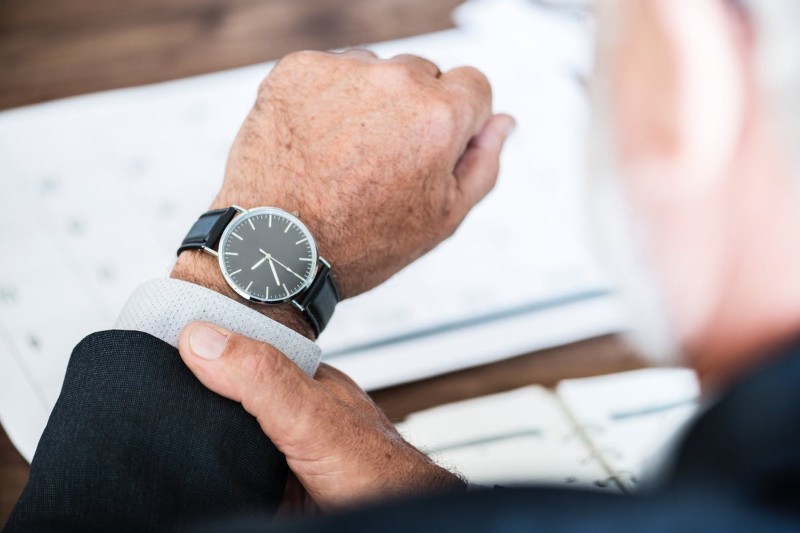
Skills to Put on Resume (List of Good Examples for All Jobs)
You have ideas about which skills to put on a resume, but they seem out of place? Give this article a read to find the know-how with a list of skills for your job application.

How important is sleep, why should you care, and how will improper sleep hygiene mess with your health and wellness? Learn how to sleep better from this expert-driven guide.
Want to know how to sleep better? You’re not alone.
We’re not sleeping enough, and it’s killing us.
As a nation, we’re the most exhausted, overworked, under-rested bunch in history. It’s bad for our health, for our looks, and for our work performance.
In fact, 70 million US adults suffer from sleep loss every day. We spend over $66 billion on sleep medication, devices, and clinical visits, and fractured sleep time costs over $411 billion every year.
Worse, cheating sleep will not give you a long and healthy life. The overwhelming body of scientific sleep research shows sleep loss promotes cardiovascular disease, dementia, and death.
But we can’t just work less, “have less stress,” and meditate two hours a day. That would be wonderful and practical if we were rich like Gwyneth Paltrow.
The good news? We can take steps to fix sleep problems, but there’s no one-size fits-all solution. The real cure for all those 3 am angst sessions is pinpointing the exact cause of your sleeplessness, then taking a targeted approach.
In this article, we’ll look at the many causes of sleep loss that torpedo work performance, health, and productivity. We’ll see fixes from apps to medications to sleep tips used by Navy SEALs to fall asleep in seconds. In the process, we’ll hear from bona fide sleep experts who’ve helped millions get the deep, restful sleep patterns we crave and need.
Why do we need to switch our brains off 8 hours every night? Sleep time lets us rest, restore, repair, and it may even keep our brains young and “plastic.” Understanding the importance of sleep is a key step in knowing how to sleep better.
Why is sleep important? When you don’t sleep, the world becomes a living nightmare. Things that seem petty in daylight turn monstrous. Worse, you know without sleep you’ll be less-well equipped to solve those problems when the sun comes up.
But you’re not alone. 70 million Americans suffer from sleeplessness every night. The costs of poor sleep patterns hit us at work, in our wallets, in our private lives, and in our health. Here are six big reasons to focus on how to sleep better.
How important is sleep to the economy? According to Rand corporation research, we lose 2–3% of global GDP to sleeplessness. That’s $411 billion in lost productivity in the US alone. But even small changes to our sleep habits could have a massive impact. If everyone slept at least six hours a night, we’d add an estimated $226.4 billion to the US economy.
Why is sleep important? People in the US lose 1.2 million work days per year from lack of sleep time. Supervisors spend 5.3 weeks a year dealing with absences. A single absence on the team makes a supervisor 15.7% less productive. Co-workers get 30% less work done when one person is out sick.
How important is sleep to your career? Regularly missing sleep slashes concentration, reaction time, memory, and decision-making power. It crushes your interpersonal skills one of the biggest determinants of career success.
Lack of sleep also causes accidents. Sleep loss was a contributing factor in disasters like the Three Mile Island nuclear meltdown, the Exxon Valdez Oil spill, and the Challenger Space Shuttle explosion. In fact, tired workers are similar to drunk employees for motor function, speech, memory, decision-making, and problem-solving. Fatigue causes an estimated 100,000 car crashes per year.
Plus, as we move up the company ladder, we get both more responsibility, and less sleep. The average senior manager and CEO get 25% less sleep time than the populace at large.
Want to live a long and healthy life? Learn how to sleep better. People who sleep less than six hours a night have a 13% higher chance of dying.What should really keep you up at night though (pun intended) is the variety ways sleep loss wrecks your health. Here’s a rundown:
The grain of salt. The “good” news? Sleeping too long has also been associated with nearly every health risk in this list. In short, there’s a sweet spot—your sleep schedule should be 7–9 hours every day.
How important is sleep to your love life? Not getting enough sleep wrecks marriages and friendships. According to neurologist Chris Winter, author of The Sleep Solution, sleepless people talk to their partners less and help out less with household chores.
Why is sleep important to relationships? Poor sleepers feel sadder and angrier—not conducive to romance. Fractured sleep patterns can even contribute to divorce. The upside? Married people know how to sleep better. That gives them a leg up on their single peers.
When you hear about people waking up from sleep with an answer to an unsolved problem or an idea for a new invention, you can thank REM sleep time. “During REM, the brain consolidates memories,” says sleep expert Dr. Kasey Nichols. “That means it converts new experiences into long-term memories.”
Sleep also smooths out our emotions. “REM sleep allows your amygdala to process negative emotions, in particular, fear and stress,” says Nichols. Less REM sleep can cause negative memories to pile up, which can spark depression.
As a nation, we’re not concerned with how to sleep better. Americans got an average of 7.9 hours of sleep in 1942. Today, that’s shrunk to 6.8 hours. It’s seen as “cool” to run on less sleep. Some executives and professionals brag about how little sleep time they get.
“We skimp on sleep,” says Terry Cralle, sleep expert and author of Sleeping Your Way to the Top, “because we want more waking hours. But if you sleep well, you get more done and do it better.”
People who sleep longer think more clearly, solve problems more efficiently, make fewer errors, and are more productive. “Overall,” Cralle says, “you're performing at a much higher level.”
Can getting enough sleep make you a superhero? Not to harp on Tom Brady again, but the G.O.A.T. gets more than 8 hours of shut-eye, keeping his bedroom “cold and dark like a bear.”
Brady is not alone. Roger Federer sleeps 10 hours a night and takes a 2-hour nap. LeBron James is in the 12-hours-of-sleep club too. Usain Bolt sleeps 10 hours a night plus naps. In fact, he broke one world record just after waking up.
So does sleeping more make you a champion? And could that carry over into work performance? The evidence says yes and yes.
“We’ve got to start thinking about sleep as a biological need that truly enhances our performance,” Cralle says.
There’s no denying knowing how to sleep better can boost your chances of success. Still, unless you’re training like a champion (eating 5,000 calories a day and training 5–7 hours a day) you likely won’t need 12 hours per night.
There are over 70 different sleep disorders that may be stealing your beauty sleep. But you can’t know how to sleep better until you know the cause. So, here are the top sleep disorders.
Even when we want to know how to sleep better, we often can’t. Below are the top reasons for short sleep time and sleep deprivation.
Choice. We’re not asking, Why is sleep important? “Our culture today equates sleep with weakness, not the biological necessity it is,” says Terry Cralle. “We think if we're high-achievers, we have to learn to power through with less sleep.” But research shows with good sleep patterns, we actually get more done in less time than when we cheat on sleep.
Daytime caffeine zaps your sleep at night, making you more tired the next day without it. “Everyone's a little different in their tolerance, but I see too many people in Starbucks late in the day,” says Cralle
Shift work can crush our sleep patterns by disrupting our circadian rhythms and depriving us of natural daylight.
Being a parent with a young child can disrupt your sleep for up to 6 years after the child is born.
Certain diseases like Lyme disease can rob you of your sleep and leave you groggy during waking hours.
Not enough daylight. If you spend most of your day inside, you won’t feel sleepy at night and you’ll be groggy during the day.
Diet. Eating well isn’t just good for your health. It also helps you sleep.
Can’t figure out how to sleep better? Below are the best techniques for getting better sleep, from sleep experts and neurologists.
What’s the biggest change you can make to get more sleep? Don’t look at the clock during sleeping hours, says sleep expert Terry Cralle. Without a clock, the “chore” of falling asleep goes away. You won’t start doing math in your head and worrying about how little sleep you’re getting. If your room is dark and cool and you’re “in the dark” about how much sleep you’ve missed, you’ll most often fall back to sleep soon.
One of the biggest reasons we don’t sleep is that we don’t respect it. “People say they only have time for 4–5 hours a night,” says Cralle. “But that can be dangerous, with studies showing metabolic changes after just a few nights of short sleeping.”
Wondering, “When should I wake up?” Or, “What time should I go to bed?” Try to go to bed as close to the first full darkness as you can, and rise with the sun. Going to sleep at 9pm, 10pm, or 11pm matters less than keeping the same sleep schedule every night.
Getting 6 hours of sleep a night will sap your focus, moods, health, and well-being. Always get 7–9 hours of in-the-bed sleep time, even if you’re awake for some of it. Even if you feel fine after six hours of sleep, your effectiveness suffers.
Numerous studies show getting more natural light is one of the top techniques for how to sleep better. Yet we’ve got ever brighter screens in laptops and phones. Those screens—and our brightly-lit homes—are sending silent messages to our brains that say, “It’s morning! Go to sleep 12 hours from now.” Trying to override those messages can be like eating a 32-ounce porterhouse steak right after Thanksgiving dinner. Your body will say, “Nope.”
The upside? One-third of US employees work from home at least sometime during the week. That gives us a tremendous opportunity to work on a porch, park bench or in an outdoor cafe. In winter, sit near a window for a few hours in the morning.
Tired of being tired? Try switching to decaf after 2pm. Studies show that even drinking coffee 6 hours before bedtime can rob your sleep time.
Listening to an audiobook can help you sleep. Turn the volume down and set the playback to its slowest speed. Then set a timer so it shuts off in an hour. Most phones can set a “stop playback” alarm. Here’s how on iPhone and Android.
When your mind has a tricky “job to do,” it stays alert. “Some people fall asleep better with a distraction,” says Cralle. So, here are a few tips for how to sleep better with distractions:
Why is sleep important for Navy SEALs? Imagine trying to sleep in the rain, cold, or in a fire zone, when your life depends on being rested. Thankfully, these hardened warriors have a trick that helps them drift off in two minutes.
How to fall asleep:
The 2-minute Navy SEAL sleep technique works for 96% of sleepers. The downside? It can take six weeks of practice.
Want to know how to sleep better? Yep, there’s an app for that. None are clinically tested, but high user review scores on a few show promise. Here’s a shortlist:
Some sleep doctors caution that sleep tracking can make you stress about sleep loss, which makes you lose more sleep. “But overall,” says Cralle, sleep management should be basic in our lives, like brushing our teeth or showering.”
Meditation can teach you how to sleep better by reducing stress. Here are a few meditation apps that can help you get your 40 winks:
“I like meditation,” says neurologist Chris Winter. “When you start getting good at it and settling your mind, it becomes easier to fall asleep.” And even if you don’t learn how to sleep better, you still get good quality mental rest.
Here are a few more relaxation and distraction techniques that can take your mind off, “I can’t get to sleep!”
Eating a healthy, balanced diet can improve your sleep time. Foods that impact tryptophan, serotonin, and melatonin like eggs, cheese, and salmon can help your sleep quality and duration.
Plus, take a magnesium supplement. “Magnesium facilitates sleep-regulating melatonin production,” says Dr. Carolyn Dean. Studies from MIT and elsewhere have shown magnesium helps your sleep patterns and enhances memory.
Daily exercise will help you fall asleep faster and stay asleep longer. But shouldn’t you limit exercise before bed? New studies say exercise at any time of day will help you sleep. “I'd rather see people get some exercise than none, because exercise begets quality sleep,” says Terry Cralle.
The sleep cycle is the pattern of sleep stages from NREM (non-REM) to REM sleep (rapid eye movement). Each sleep cycle lasts 90 to 120 minutes, and includes about 15 minutes of the four stages of sleep, including stages 1, 2, 3, and REM sleep.
We all need more sleep time, and most of us would love to know how to sleep better. One in three of us is sleep-deprived, and that’s dangerous to our careers, health, moods, and relationships. The first step is acknowledging the problem. Then, get more bright daylight in the morning, and try one of the excellent sleep apps above. Chances are you’ll soon be sleeping a lot better than a baby.
You have ideas about which skills to put on a resume, but they seem out of place? Give this article a read to find the know-how with a list of skills for your job application.
You hate your job, hate your boss, and want to leave right away but don’t quite know how? We’re here to help. Find out what to do when you hate your job and get ready to start a new one you’ll love—a month from now. Interested? Read more!
Time management is the process of planning and organizing one's activities in order to enhance performance, maximize productivity, and increase efficiency.

